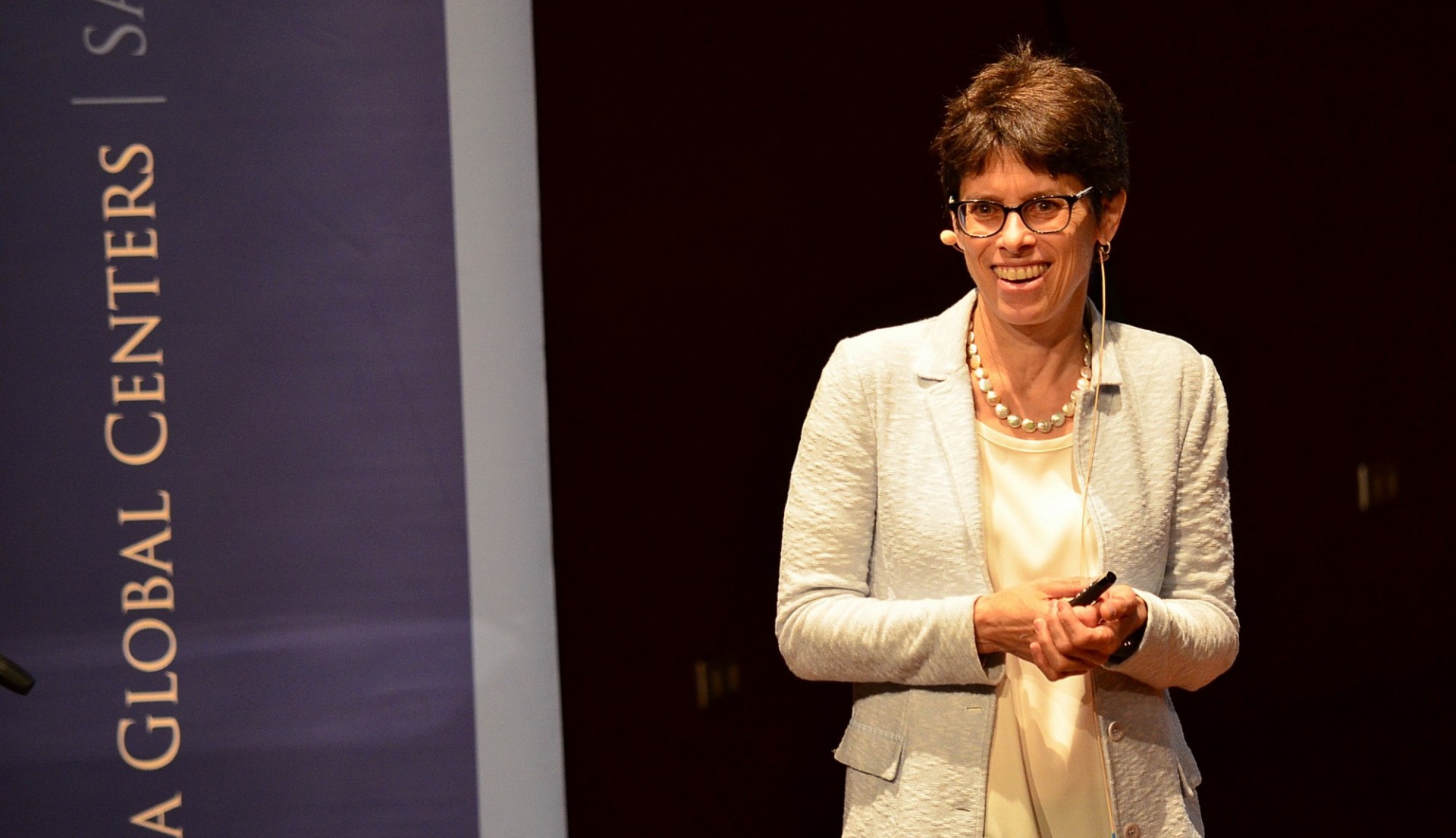Suzanne Goldberg, Executive Vice President of Columbia University’s Office of University Life, Spoke on Diversity, Inclusion and Sexual Respect in Chile

During the last few months Chile has experienced a wave of strikes, occupations and protests against sexual harassment and gender discrimination within the country’s universities. Thousands of students and faculty members have participated in demonstrations and sit-ins demanding clear policies and protocols on how to deal with sexual misconduct as well as with the prevailing patriarchal culture, sexual stereotyping, lack of female representation at senior levels of academia, wage gaps and other forms of discrimination against women. The entertainment industry, government institutions and private firms have also been confronting allegations related to sexual violence and abuse, glass ceilings, underrepresentation of women in the pipeline and machismo.
In July, Suzanne Goldberg, Executive Vice President of the Office of University Life at Columbia, travelled to Chile to share the university’s experience on these matters, its commitment to fostering an environment that is free from discrimination and harassment, including sexual assault and all other forms of gender-based misconduct, and its policies and protocols on diversity and inclusion.
One of United States’ foremost experts on gender and sexuality law, Goldberg is founder and director of the Sexuality and Gender Law Clinic, and co-director of the Center for Gender & Sexuality Law at Columbia Law School. From the Office of University Life, she has spearheaded the nationally-recognized Sexual Respect Initiative and led University-wide task forces on Gender-Based Misconduct Prevention and on Race, Ethnicity and Inclusion.
In Chile she participated in more than a dozen meetings with government officials, local universities’ provosts and deans, business leaders, alumni, faculty members, students and feminist activists, among others. She had an engaging conversation on best practices on sexual respect with Isabel Pla, Minister of Gender Equality, and discussed Columbia’s experience with the presidents of Universidad Católica (UC), Ignacio Sánchez; Universidad de Chile (UChile), Ennio Vivaldi; and Universidad Adolfo Ibáñez (UAI), Harald Beyer. She also met with faculty and students in a luncheon hosted by José de Gregorio, Dean of the School of Economics and Business at UChile, and with the leadership of UC’s School of Engineering led by Dean Juan Carlos de la Llera.
In Santiago, Goldberg participated in two speaking engagements: she discussed Columbia’s Sexual Respect initiative at an event co-hosted by the Santiago Center and Cultural Center GAM, which was attended by more than 300 people. There, she explained the multifaceted approach adopted by the University, which includes educational and awareness programs; services and resources for those affected by gender-based misconduct; accessible, prompt, and fair methods of investigation and resolution of reports of misconduct; and protections designed to prevent against recurrence. You can download her PowerPoint presentation here. She also led a roundtable discussion at the Santiago Center with key leaders of the feminist movement that has led the struggle to promote women’s rights in academia, chaired by Columbia alumna Claudia Heiss (GSAS’03), entitled “When ‘No’ Means ‘No’- Promoting a Culture of Consent”, on how to confront gender-based-misconduct, including sexual assault and harassment, partner violence, and stalking.
Several local CEOs and heads of Human Resources departments from different Chilean companies participated in dialogues with Goldberg on best practices, policies and protocols to promote diversity, inclusion and sexual respect at private sector firms. One of these gatherings was organized by Generación Empresarial and took place at the headquarters of Chile’s main business council, CPC. At a meeting organized by Spencer & Stuart, Goldberg discussed the experience of Twentieth Century Fox and other US companies that have confronted complex cases on these matters. You can download her PowerPoint presentation here.
Goldberg also met with the Student Council of UChile’s Law School, which had been on strike for more than two months due to complaints on how the University dealt with a sexual harassment case, and with the head of the Gender Equality Division at UChile. During the last day of her trip, she led a training course for the District Attorney’s Unit on Human Rights, Gender Violence and Sexual Crimes.
See a picture gallery of Suzanne Goldberg’s activities in Chile, including an alumni reunion in her honor here.
To read interviews and articles on her visit (in Spanish), visit the following links:
- Letter Published by Provost Ignacio Sánchez in El Mercurio newspaper
- Interviews in “Revista Ya”, EMOL (El Mercurio OnLine); and Pauta.cl (Radio Pauta)
- Reports on her visit posted in Universidad Católica website; Universidad de Chile’s website; and Gam’s website